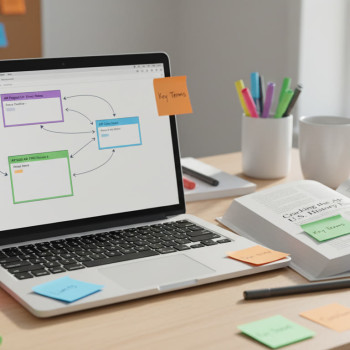Why Language Scholarships Matter for AP Students
If you love languages, congratulations — you’re sitting on a powerful advantage. Language-related scholarships not only provide financial support for college, they recognize skills that admissions officers and employers highly value: communication, cultural awareness, critical thinking, and adaptability. For students taking College Board AP language or English exams, scholarships amplify the work you’re already doing in the classroom and during exam prep. This blog walks you through the scholarship landscape, practical steps to position yourself as a strong candidate, sample timelines, and concrete tips for essays, activities, and test prep. Along the way, we’ll highlight how targeted, personalized tutoring — like Sparkl’s 1-on-1 guidance and tailored study plans — can sharpen both your AP performance and your scholarship applications.

Types of Language-Related Scholarships
Language scholarships come in many shapes. Understanding the types helps you match your profile to awards with the best fit.
Merit-Based Awards
- Given for demonstrated excellence in language study or academic achievement tied to language courses (AP scores, GPA, awards).
- Often require transcripts, test scores, and a personal statement.
Need-Based Scholarships with Language Components
- Financial-need awards that prioritize students planning to major or minor in languages, linguistics, or area studies.
- These may ask for FAFSA or institutional financial documentation plus an essay on how language study shapes your goals.
Heritage and Community Scholarships
- For students who maintain or reclaim a heritage language; these awards celebrate cultural continuity and community leadership.
Study Abroad and Immersion Grants
- Short-term or semester-long grants intended to support immersion experiences that expand language proficiency and intercultural competence.
Translation, Interpretation, and Linguistics Competitions
- Some organizations offer awards based on contests or project submissions — translation samples, linguistic research, or oral interpretation.
How AP Exams Fit Into Scholarship Applications
AP scores are portable evidence of college-level mastery. They can play several roles in scholarship applications:
- Proof of subject strength: A high AP score in a language exam (AP Spanish Language and Culture, AP French Language and Culture, AP German Language and Culture, etc.) demonstrates proficiency and commitment.
- Evidence for advanced placement: AP credits may free up your college schedule and make a study-abroad semester feasible, strengthening your scholarship narrative.
- Context for essays: Use your AP preparation experience as a concrete story in personal statements — a way to show discipline, growth, and intercultural insight.
Example: Turning an AP Experience Into Scholarship Material
Imagine you scored a 5 on AP Spanish Language after spearheading a bilingual podcast at your school. In scholarship essays, that 5 becomes more than a number; it’s a milestone in a trajectory that includes leadership, service, and real-world application — all elements scholarship committees love.
Concrete Steps: From AP Prep to Winning Scholarship Applications
Winning scholarships is a strategic game that rewards planning. Below is a step-by-step path you can adopt now.
1. Audit Your Profile
- List your AP scores (or target scores) and language-related activities: clubs, tutoring, cultural events, translation projects.
- Identify gaps: Do you need more public speaking, community service, or a demonstrable project?
2. Choose the Right Awards
- Not every scholarship is open to everyone — some prioritize heritage, others academic merit or plans for study abroad. Match your strengths to the award criteria.
3. Build Compelling Evidence
- Keep a portfolio: essays, audio/video of oral presentations, translations, teacher letters, and samples of leadership work.
- Use AP coursework as one piece of evidence: screenshots of practice tests, graded thematic essays, or teacher feedback on AP-style performance.
4. Craft Essays That Show Growth
- Don’t just recount facts. Use vivid anecdotes: the moment you first mentored a classmate through subjunctive verbs, or the first time you interviewed a native speaker for a school magazine.
- Connect language study to future plans: how a language major, a career in international law, medicine, business, or diplomacy will be enabled by your current skills.
5. Request Strong Recommendations
- Ask teachers who can speak specifically about your language skills — not just general kindness. Provide them with a short packet: resume, achievements, and points you’d like highlighted.
6. Show Impact — Not Just Interest
- Scholarship committees want to see that your language skill benefits others: tutoring peers, supporting community members, translating for local clinics, or starting conversation tables.
Timeline and Checklist: Two-Year Plan Before College
To make the process manageable, here’s a timeline you can adapt. The table below summarizes milestones and deliverables over 24 months.
| Timeframe | Milestone | What to Deliver |
|---|---|---|
| 24–18 months before college | Profile Audit & Goal Setting | List of AP targets, language activities, shortlist of scholarships |
| 18–12 months | Strengthen Portfolio | Start a language project, collect teacher feedback, plan test timeline |
| 12–6 months | AP Exam Prep & Applications Prep | AP practice tests, first drafts of essays, ask for recommendations |
| 6–3 months | Finalize Submissions | Polished essays, completed forms, transcripts requested |
| 3–0 months | Interviews & Follow-Up | Mock interviews, thank-you notes, scholarship-specific updates |
Essay Strategies That Work for Language Awards
Language scholarship essays have certain recurring themes: identity, cultural bridges, and service. Here’s how to approach those topics so they feel original.
Tell a Focused Story
A strong essay tends to zoom in on one meaningful moment rather than summarizing a resume. Consider opening with an evocative scene: the first time you successfully mediated between family members in two languages, or the awkward but enlightening moment you misused a verb and learned from it.
Show, Don’t Lecture
Use sensory details and specific outcomes. Instead of saying, “I helped refugees,” show a short scene: what was the document? How did your language ability change someone’s immediate situation? Concrete impact reduces the risk of sounding generic.
Connect to Future Impact
End essays with how the scholarship will enable you to do more: study abroad, pursue a bilingual healthcare track, or create community translation hubs. Committees want to fund potential, not just past achievements.
Strengthening the AP-to-Scholarship Pipeline: Practical Examples
Concrete examples help you reframe academic performance into scholarship narratives.
Example 1: AP Scores + Community Project
Maria, a rising senior, earned a top score on AP Spanish Language and used her fluency to organize a free weekly conversation table at the local library, helping adult Spanish speakers practice English while maintaining cultural traditions. In scholarship materials she paired her score with data: number of attendees, testimonials, and a transcript excerpt showing advanced coursework.
Example 2: AP English Language as a Launchpad for Translation
Eli leveraged AP English Language skills — argumentation, rhetorical analysis — to translate public health brochures for community clinics. His essay framed translation as applied rhetoric: making complex information persuasive and accessible to real people.
Interview Prep: What Scholarship Panels Often Ask
Interviews are common for competitive awards. Expect these question types and practice concise, story-driven answers.
- Why language studies? (Bring a two-minute story.)
- How have you used your language skill in your community? (Quantify impact if possible.)
- Describe a failure and what you learned. (Pick something that shows growth.)
- How will this scholarship change your future? (Be concrete about next steps.)
Practical Prep Tactics: Tests, Projects, and Time Management
Balancing AP prep with scholarship work needs structure. Here are tactics to streamline your efforts so both thrive.
Integrate Scholarship Work Into AP Prep
- Use AP essays as scholarship writing fodder. A well-scored AP Free Response can be adapted into a narrative after revision.
- Turn AP speaking prompts into recorded samples for scholarship portfolios.
Micro-Projects That Impress
- Translation mini-portfolio (3–5 short pieces with context and impact).
- Community language workshop (document attendance and learning outcomes).
- Podcast episode in the target language that interviews local speakers — demonstrates initiative and multimedia skills.
Time Management Template
- Weekly 90-minute language block: 45 minutes AP practice (listening/reading), 30 minutes project work, 15 minutes reflection/journal.
- Monthly check-ins: gather new artifacts for portfolio, request one updated letter of recommendation if your activities are advancing.
How Personalized Tutoring Can Boost Both AP Scores and Scholarship Chances
Targeted tutoring does more than improve scores — it helps craft the narrative that scholarship committees respond to.
- 1-on-1 Guidance: Tutors can identify your weakest skill (e.g., spoken fluency) and create practice sessions that double as portfolio material.
- Tailored Study Plans: A schedule aligned to AP exam dates and scholarship deadlines reduces stress and prevents last-minute scrambling.
- Expert Tutors: Instructors with real-world language experience can mentor projects like translation portfolios or guided interviews.
- AI-Driven Insights: Data-driven feedback helps track progress and pinpoints which essay drafts or speaking samples are scholarship-ready.
Sparkl’s personalized tutoring can fit naturally into this pipeline by offering focused sessions that both lift AP test performance and generate concrete material for scholarship applications — from polished speaking recordings to stronger, more persuasive essays.
Common Pitfalls and How to Avoid Them
Even talented applicants stumble on a few recurring mistakes. Avoid these to keep your application competitive.
- Too Much Listing: Don’t let your application read like a resume. Use narrative to show depth.
- Generic Essays: Avoid platitudes about travel and “cultural appreciation” without concrete examples.
- Poor Documentation: If you claim community impact, provide numbers, dates, and contactable references.
- Late Starts: Scholarships with rolling deadlines reward early organization; follow the 24-month timeline above.
Budgeting Time and Resources for Applications
Not every student can afford paid programs. There are smart ways to stretch limited resources.
- Leverage Free Community Opportunities: Libraries, cultural centers, school clubs — all can provide documentation for impact.
- Trade Value For Mentorship: Offer language tutoring to community organizations in exchange for a letter of recommendation or project supervision.
- Smart Use of Paid Tutoring: Invest in targeted sessions for bottlenecks — speaking confidence, essay polishing, or interview practice — rather than long block purchases that aren’t focused.
Sample Scholarship Application Checklist
Use this checklist when you hit “submit” to ensure nothing gets missed.
- All transcripts requested and attached
- Official AP score report or plan to send scores
- Polished personal statement (two reviewers)
- Portfolio samples labeled and contextualized
- Recommendation letters requested at least 4–6 weeks in advance
- Interview prep session scheduled

Final Thought: Language Study Is an Investment With Multiplier Effects
Language skills compound. They help you in the classroom, on AP exams, in scholarship competitions, and later in careers that value cross-cultural competence. The secret is to treat language study strategically: collect evidence as you go, craft narratives that show impact, and use targeted support where it matters most. Whether you’re aiming for merit-based awards, heritage scholarships, or study-abroad grants, a clear plan that links AP achievements to real-world outcomes will set you apart.
If you want help turning AP prep into a scholarship-winning profile, consider a short series of focused, 1-on-1 tutoring sessions to build your portfolio, draft essays, and practice interviews. With tailored strategies and the right support, language awards can become an achievable and transformative part of your college journey.
Quick Actionables (Start This Week)
- Make a one-page profile: list AP targets, language activities, and two scholarships to apply for.
- Record a 2-minute oral reflection in your target language — use it as both AP speaking practice and a scholarship artifact.
- Draft an outline for a scholarship essay using one vivid moment from your language experience.
Closing Encouragement
Language study is more than a class — it’s a bridge. Approach scholarships as another bridge: one that requires construction (planning, practice, polishing) and offers a passage to exciting academic and personal opportunities on the other side. With intention, your AP work can do double duty: boosting college readiness and funding your next big steps. Buenas suertes, bonne chance, viel Glück — you’ve got this.


















No Comments
Leave a comment Cancel